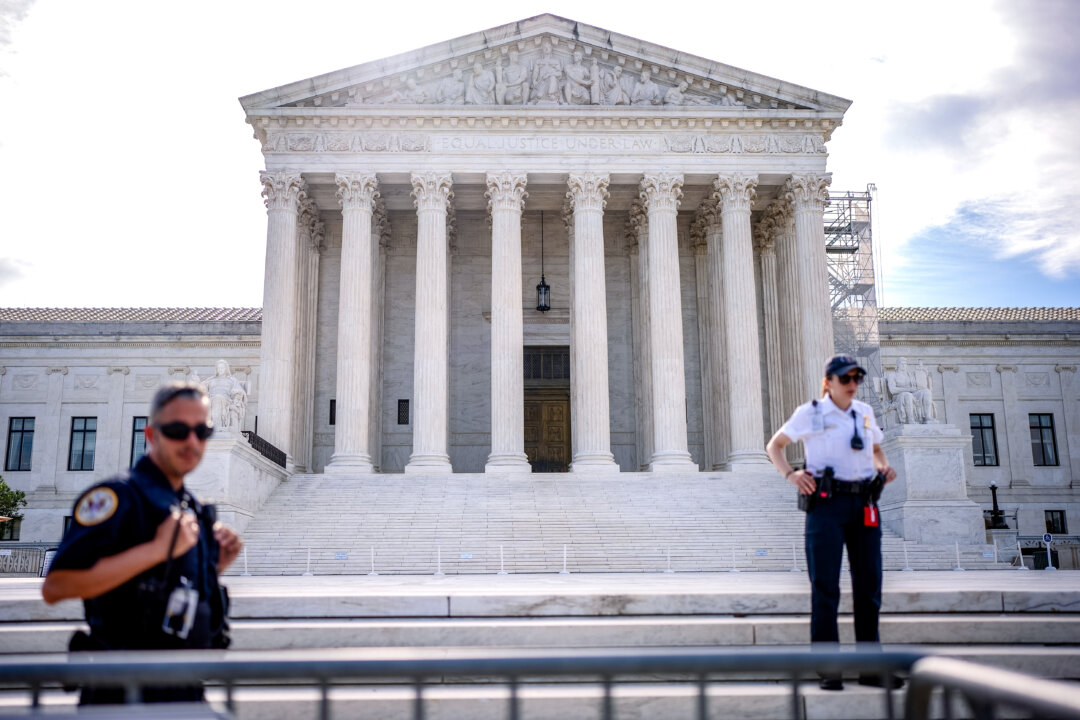Those covered under the program are nationals from Venezuela, Nicaragua, Cuba, and Haiti, officials say.
Lawyers for the Trump administration submitted an emergency petition to the U.S. Supreme Court in a bid to revoke the temporary immigration status of hundreds of thousands of Venezuelan, Cuban, Haitian, and Nicaraguan nationals living in the United States.
In an emergency petition Thursday, U.S. Solicitor General D. John Sauer wrote on behalf of the government that the nine justices should place a hold on a federal judge’s decision that halted the government’s decision to terminate immigration parole that was granted to the Venezuelan, Cuban, Haitian, and Nicaraguan individuals under the Biden administration.
In their filing to the Supreme Court, Department of Justice lawyers led by Sauer argued that the lower court order had upended “critical immigration policies that are carefully calibrated to deter illegal entry,” essentially undoing “democratically approved policies that featured heavily in the November election” and allowed President Donald Trump to return to the White House.
Starting in 2022, the Biden administration allowed Venezuelans who entered the United States illegally to submit a two-year parole request if they passed certain background checks and had a financial sponsor. That was later expanded to Haitians, Cubans, and Nicaraguan nationals.
About 530,000 people were paroled through the policy, allowing them to live and work in the United States, before Trump returned to the White House in January, Homeland Security officials have previously said.
The new Trump administration petition argued that courts have no jurisdiction to overturn Homeland Security Secretary Kristi Noem’s revocations of those individuals’ immigration statuses.
“In doing so, the district court engaged in the very review Congress prohibited—needlessly upending critical immigration policies that are carefully calibrated to deter illegal entry, vitiating core Executive Branch prerogatives, and undoing democratically approved policies that featured heavily in the November election,” Department of Justice lawyers wrote.
Only the Constitution and Immigration and Nationality Act of 1952 give Noem and the other executive branches, and “not the courts,” the “task of deciding whether it is in the public interest to allow up to 532,000 aliens who were never admitted, were paroled en masse, and have not been inspected to remain in the country,” the petition states.
Since taking office, the Trump administration has brought multiple emergency petitions to the U.S. Supreme Court, arguing that lower court judges are exercising outsized control over the executive branch, violating the Constitution’s separation of powers clause.
U.S. District Judge Indira Talwani, who serves in Boston, blocked Noem’s termination of the parole program on April 14. The 1st U.S. Circuit Court of Appeals earlier this week declined to intervene in the case, prompting Sauer’s appeal to the highest court on Thursday.
Trump called for the end of these programs in an executive order signed on Jan. 20, his first day back in office. The Department of Homeland Security moved to terminate the programs in March, including cutting short the two-year parole grants for about 400,000 people.
The administration has said in court papers that revoking the parole status would make it easier to place the foreign nationals on a fast-track deportation process known as “expedited removal.”
The plaintiffs, a group of individuals granted parole and sponsors, sued administration officials, arguing that the government violated federal law governing the actions of agencies. Talwani in April wrote that the law governing such parole did not allow for the program’s blanket termination, instead requiring a case-by-case review.
Justice Action Center, the nonprofit immigrant rights group representing humanitarian parole beneficiaries in the case, said in a statement after the appeals court ruling earlier this week that “now the Trump administration needs to uphold its end of the bargain.”
Reuters contributed to this report.

